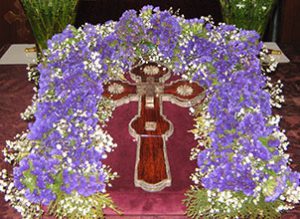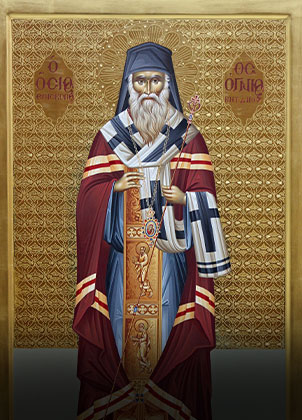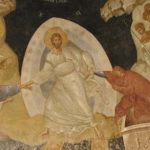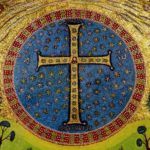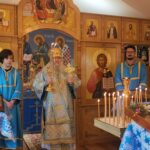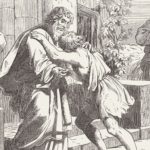In the name of the Father and of the Son and of the Holy Spirit.
Brothers and sisters, Great Lent is the time for repentance. But what is repentance? The Greek word for repentance is μετάνοια, which literally means ‘changing of one’s mind’. Thus, repentance is changing – changing one’s thinking and habits, changing one’s life. To repent means not only to regret one’s sinful actions, but to abandon them.
But first, we need to identify our sins. Repentance starts with a distinct and clear awareness of our sins. One could assume that it is easy, because no one knows us better than we ourselves. However, it is very difficult and even impossible for us to recognize our sins, unless Divine Grace helps us and enlightens our minds.
This is why in the prayer of St Ephraim, which is recited at every service during Great Lent, we pray: “O, Lord, grant me to see my failings and not condemn my brother.”
When we come to confession, we often don’t know what to say.
Why does this happen to us? Because our pride and self-love blind us and don’t allow us to see the true state of our soul. Grave sins appear to us as insignificant faults, betrayals of conscience and duty we regard as natural actions, worthy of indulgence. Unless God’s Grace enlightens our mind we cannot see our sins.
Those who attended the reading of the Great Canon of St Andrew of Crete during the first week of Lent should have noticed that St Andrew, addressing his own soul, finds himself more sinful and unworthy than all sinners of the Old and the New Testament. He exclaims:
“I fall down before Thee and bring Thee as tears my words: I have sinned like the harlot and transgressed as no other on earth. But have compassion, O Lord, on Thy work, and recall me”.
And again:
“Though no one has sinned against Thee as I, yet accept even me, O compassionate Saviour, repenting with fear and crying with love: Against Thee only have I sinned. I have done wrong, have mercy on me”.
And finally, in the last troparion of the Canon, St Andrew prays:
“O my Judge and my Light Who alone knowest me and art coming again with Thine Angels to judge the whole world, regard me then with Thy merciful Eye and spare me, O Jesus. And have compassion on me who have sinned more than all mankind”.
St Andrew, the author of the Great Canon, was a pious monk from his youth. However, he truly felt himself a sinner, because God’s Grace granted him to see the state of fall, in which all mankind remains from Adam.
The Saints considered themselves sinners. Here there is no contradiction; on the contrary, as one Holy Father says: “When a soul would see her sins as numerous as the sand of the sea, this is a sign that she is not far from being healed”.
Just as pride is the source of all sins and passions, so humility produces all virtues.
God does not accept the prayer of a person, who does not acknowledge himself a sinner. He rejects the prayer of the Pharisee and accepts the humble words of the publican.
May the blessed time of Great Lent guide us towards learning ourselves, which is the beginning of repentance.
“O, Lord, grant me to see my failings and not condemn my brother.”
Amen.


